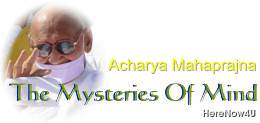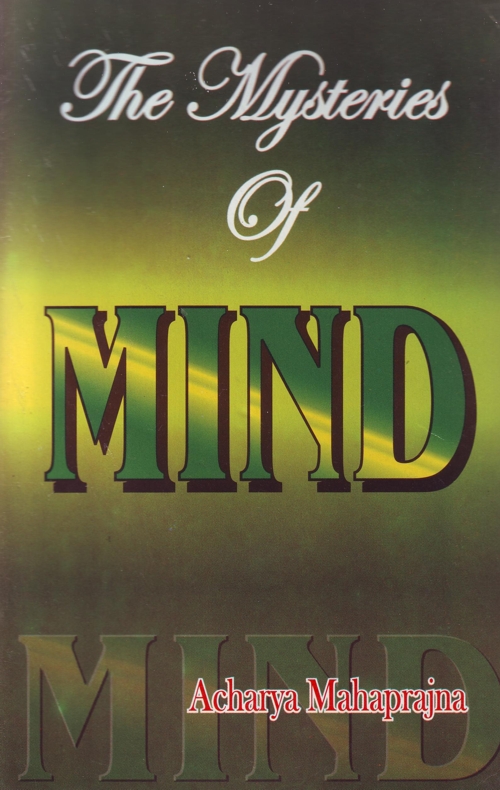
- The universe and every thing in it are compounds - there is nothing in it, which is not a compound.
- Knowledge is infinite, language has limits, and experiences are infinite.
- Formal existence - form less existence.
- Subtle formations - structure of pudgalas with four sense contacts.
- Gross formations - structure at pudgalas with eight sense contacts.
- Very subtle, complex and wonderful structure of the cell.
- Cells of the karma body - millions and billions of cells in a space of one square inch.
- It is one thing to get knowledge; it is difficult to sustain its impact.
- Science is concerned with these activities of the gross body.
- Science does not say why the activities take place.
- The taijasa body is the connecting link between the gross and subtle bodies.
- Language is a material medium, - the yoking of language is a conscious activity.
- The mind is material - the yoking of mind is a conscious activity.
The modern age has set new records in surgery. A lot of scientific research has been done by dissecting and vivisecting the bodies of animals and plants, which had never been done be fore. Some such research might have been done in the past also, but its records are not available. Surgeons have cut open each and every part of the body and have examined and known it. Nothing about the body is any more unknown. After a very minute examination of it they have not come across anything in the body except its parts.
In ancient time Prince Pradesi conducted some research in connection with the soul. He wanted to perceive the soul directly. He weighed the living body and again weighed it when it was dead. He did so in order to ascertain the weight of the soul. Modern scientists have also done something like this with the help of very delicate instruments. These experiments have changed some of the old notions to some extent. Pradesi had no surgical instruments with him. He could not arrive at any conclusion.
He conducted another experiment. He cut the human body into pieces. He thought that if there were anything like a soul in the body, it will escape from one of the pieces. He went on watch ing the pieces, but nothing, which he had expected, happened.
Experiments had been done in the past and they are being done now also. But the question - 'whether there is a soul in the human body' - still remains unanswered. Does the soul have weight? Is it visible or does it remain invisible? These questions have yet to be answered. The Kirliyans of the Soviet Union took photographs of the aura or halo surrounding the human body. The aura is not visible with the eye. It needs a very sensitive lens to photograph it. The Kirliyans came to the conclusion that every living body is surrounded by an illuminated atmosphere which comes from the body itself
Dr. J.C.. Trust also took photographs of the aura. On their testimony she hinted that the human body contained something other than itself. This added a new dimension to research. Photo graphs of the subtle body have also been taken. Photographs of the living body taken just after its death recorded a few bright and dim items on the photographic plate. The bright items were probably the reflection of the taijasa body, which is a subtle body. Three things quit the human body after its death: the soul, the karma sarira. and the taijasa sarira. The last two never get separated from the soul. They remain attached to it until it has become completely emancipated from bondage. They quit the dead body together. They have been with the soul since time immemorial and may remain with it eternally. They will never be estranged from each other. The soul while quitting the dead body will not leave them behind. They will accompany it.
The karma body has not been photographed like the taijasa body. Why is it so? According to the Jaina doctrine the karma body cannot be photographed. There are three entities: the soul, the subtle body and the gross body. The subtle body is comprised of the taijasa body and the karma body. The soul comes first, then karma body, then the taijasa body and last of all the gross body. The atoms, which constitute the gross body, are gross atoms. We can have a glimpse of them. The taijasa body is subtler than the gross body and the karma body is still subtler. Then comes the soul, which is the subtlest, formless and immaterial. If these bodies and the soul are viewed in an ascending order, we will proceed from the gross to the subtle, from the subtle to the subtler and from the subtler to the subtlest. You can see the gross body. You can also see the taijasa body. It is difficult to perceive the karma body. We may succeed in perceiving the karma body, but it is not possible to perceive the soul because it is form less. The formless cannot be the object of perception. You can see only that-which has a form.
Every atom of the gross body has been subjected to the process of perception. Bones, flesh, marrow and blood have been' seen and examined. The next realm is that of subtle centers, of instincts and of natural tendencies. Once this realm has been reached there remains no question of not taking the existence of the subtle body for granted. Those who commanded super sensual knowledge had actually perceived the subtle body. Scientists have also succeeded in perceiving, the taijasa body with the help of delicate and sensitive instruments. However, the difficulty of perceiving the soul has not been surmounted as yet. Scientists are still trying to probe into the mysteries of the soul, but they have not reached any definite conclusion. We can admit the existence of the soul on the testimony of the seers of super sensual realities.
Sadhana consists in penetrating into the subtle body through the gross body. First of all we have to perceive and understand the vibrations of the gross body, the chemical and biological changes happening in it and the glands and their fluids.
The human body constantly undergoes changes. Old entities disappear and new entities are born. Let us try to understand the source of all these changes. We will have to begin with the gross body. Then we will probe into the subtle body also. This task can be achieved only when we have developed our powers so much that we may be in a position to pierce the taijasa body, the aura, and lastly the karma body without the help of physical instruments. We have also to observe the consummation of the karma processes in the karma body. And after all we have also to experience that state of our being in which the perceiver, the act of perceiving and the object of perception become one and the same thing. In this state the soul becomes a pure perceiver. It is a state of pure consciousness, the deepest stratum of our being or existence. To achieve this state we have to collect a lot of energy and virya.
Some body asked Bhagavan Mahavira:
"From where does self-negligence come?"
"It flows from yoga (action of a mind, speech and body)."
"From where does virya come?”
"It flows from the body."
"From where does the body come?"
"Son, it comes from the jiva."
There can be no further question. The jiva produces the body, the body, produces virya, virya. produces yoga, yoga produces self-negligence and self-negligence produces the bondage of karma. That is the order in which the world process goes on.
The assertion of the Vedanta school of philosophy that the unconsciousness is produced by the conscious seems to be correct in a way. Bhagavan Mahavira asserted that the jiva produces the body or consciousness produces the unconscious. Both the assertions are correct from the relative point of view. They are relative assertions based on their own assumptions.
 Acharya Mahaprajna
Acharya Mahaprajna

